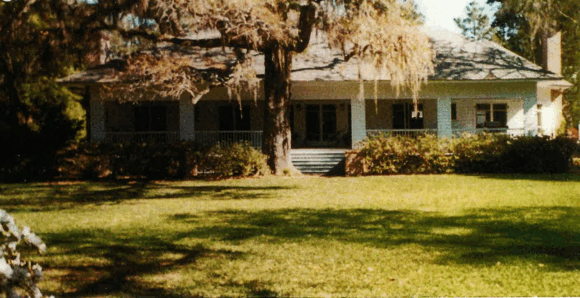The Mississippi Supreme Court this month declined to reconsider its 2024 decision to uphold almost $15 million in punitive damages and attorney fees against USAA in one of the longest-running claims disputes to come out of Hurricane Katrina.
The court ruling, stemming from litigation brought by the prominent Minor family after the storm destroyed the 130-year-old Ocean Springs home, was deemed so important that a national property insurance group, a former Mississippi governor and business groups urged the court to reconsider. The Mississippi insurance commissioner also stepped in and filed his own amicus curiae brief with the court in support of USAA.
“I’ve been practicing 35 years and I’ve never seen a commissioner do that,” said David Baria, co-counsel for the Minor family in the case.
The commissioner’s action in the case was likely due to extraordinary political pressure brought by the insurance industry and its advocates in Mississippi, Baria said.
Commissioner Mike Chaney told Insurance Journal that he has authorized friend-of-the-court filings in other cases through the years. This time, he said he felt compelled to get involved to help protect the property insurance market in the state: Insurers don’t collect premiums for punitive damages, and such large verdicts can scare insurers away.
“I’m not being partial to either side,” Chaney said.

As an example of his scrutiny of the insurance industry, Chaney pointed out that in early October he notified State Farm Insurance that the Mississippi Insurance Department is taking the unusual step of launching a targeted market conduct examination of the insurance giant, due to numerous consumer complaints about unpaid claims.
USAA’s own claims practices were also questioned throughout the 18-year litigation in the Minor case.
San Antonio-based USAA, one of the largest property-casualty carriers in the country, and its attorneys in the case did not respond to requests for information on the Minor litigation. Others involved in the case said it’s likely that USAA will now ask the U.S. Supreme Court to review the matter, based on constitutional questions about punitive damages.
In addition to punitive damages, the state high court said last week that USAA must now pay the costs of the state appeal.
The case began in 2005, when the Minors’ historic coastal home, designed in part by world-famous architect Frank Lloyd Wright, was heavily damaged by the wind and waves of Hurricane Katrina. Paul Minor, patriarch of the family and a former plaintiffs’ attorney himself, said his family repeatedly offered to settle, but USAA responded only with “scorched earth” tactics that left plaintiffs baffled.
The state Supreme Court agreed that USAA had acted in bad faith on the claim.
“The evidence presented at trial revealed that USAA wished to reap the benefits of the insurance policy premiums while depriving the Minor Estate the full benefits of that policy,” Justice David Ishee wrote for the majority of the court.
“We find that the evidence presented at trial demonstrates a type of conduct for which punitive damages are designed,” the court wrote in its 5-3 decision, handed down in December 2024. “The Minor Estate provided sufficient proof that USAA acted in bad faith, with complete disregard for the Estate’s rights.”

Baria said he hopes the decision sends a strong message to other insurance companies that may try similar tactics with insureds. “That is the purpose of punitive damages,” he said.
At the heart of the litigation was the question of whether the damage was from wind or storm surge. But the cause of much of the loss was in dispute. The Minor estate showed that the historic home was elevated and that much of it was above the water level. Testimony differed on the depth of the surge.
Three major points seemed to carry the day for the insureds in the litigation and appeals, Baria said. One, despite having information early on about the high value of the contents in the renovated home, USAA refused to consider contents coverage for years, he said. Two, the insurer ignored or missed other structures on the property, including a boathouse, shed and pier. And three, after the first trial and a jury returned a verdict faulting USAA’s claims handling, the carrier “did not undertake any sort of analysis to determine what went wrong and how they could improve their claims-handling process.”
The deposition testimony of USAA’s former senior claims examiner and catastrophe site leader, James Burke, also proved damaging to the insurer. Burke agreed that USAA may have engaged in behavior that went against the Unfair Claims Settlements Practices Act, a model law devised by the National Association of Insurance Commissioners. Most states, including Mississippi, have adopted versions of the law.
Claims adjusters were not specifically trained on standards for prompt investigation and settlement of claims, nor on handling wind-loss claims, Burke testified. He also said that the Minors’ home appeared to have sustained wind damage, that a field adjuster had provided incorrect information to the homeowners, and that other, relevant information about wind damage was left out of the claim file.
Chaney argued that much of the home’s damage was from storm surge, and the Minors should have had flood insurance coverage. Paul Minor noted that National Flood Insurance Program would have covered only $250,000, far less than the value of the home and contents.
USAA spoke to local news outlets after the 2024 Supreme Court decision.
“USAA helped thousands of families recover from Hurricane Katrina, with countless employees working tirelessly to handle member claims,” USAA said in a statement to local news sites. “We are very disappointed in the Mississippi Supreme Court’s decision as the evidence does not support the excessive punitive damages and attorneys’ fees.”
Read more about the court’s 2024 decision here.
Photo: A shot of the Minor home before Katrina destroyed it. (Courtesy, Paul Minor and David Baria).
Topics Mississippi
Was this article valuable?
Here are more articles you may enjoy.



 Insurance Issue Leaves Some Players Off World Baseball Classic Rosters
Insurance Issue Leaves Some Players Off World Baseball Classic Rosters  Munich Re Unit to Cut 1,000 Positions as AI Takes Over Jobs
Munich Re Unit to Cut 1,000 Positions as AI Takes Over Jobs  World’s Growing Civil Unrest Has an Insurance Sting
World’s Growing Civil Unrest Has an Insurance Sting  Insurance Broker Stocks Sink as AI App Sparks Disruption Fears
Insurance Broker Stocks Sink as AI App Sparks Disruption Fears 


